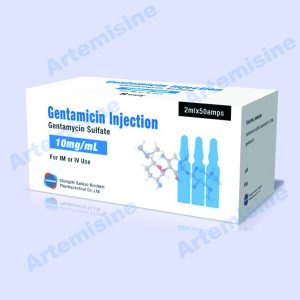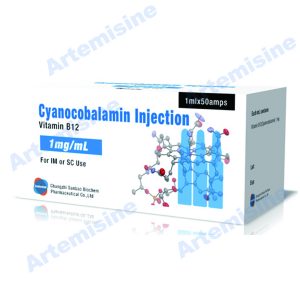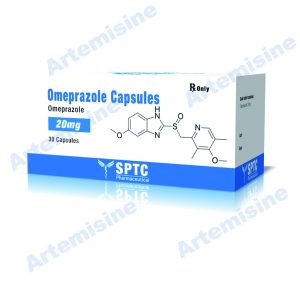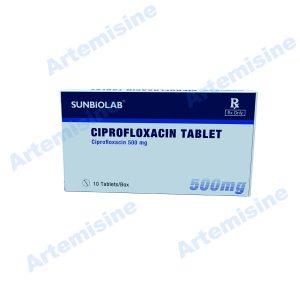Product Description
Product Name:
Cimetidine Infusion
Contains:
Cimetidine 200 mg
Package:
100 ml;
Cimetidine Injection – Clinical Pharmacology
Cimetidine competitively inhibits the action of histamine at the histamine H2 receptors of the parietal cells and thus is a histamine H2-receptor antagonist.
Cimetidine is not an anticholinergic agent. Studies have shown that cimetidine inhibits both daytime and nocturnal basal gastric acid secretion. Cimetidine also inhibits gastric acid secretion stimulated by food, histamine, pentagastrin, caffeine and insulin.
Antisecretory Activity
1) Acid Secretion: Nocturnal: Cimetidine 800 mg orally at bedtime reduces mean hourly H+ activity by greater than 85% over an eight-hour period in duodenal ulcer patients, with no effect on daytime acid secretion. Cimetidine 1600 mg orally h.s. produces 100% inhibition of mean hourly H+ activity over an eight-hour period in duodenal ulcer patients, but also reduces H+ activity by 35% for an additional five hours into the following morning. Cimetidine 400 mg b.i.d. and 300 mg q.i.d. decrease nocturnal acid secretion in a dose-related manner, i.e., 47% to 83% over a six- to eight-hour period and 54% over a nine-hour period, respectively.
Food Stimulated: During the first hour after a standard experimental meal, oral cimetidine 300 mg inhibited gastric acid secretion in duodenal ulcer patients by at least 50%. During the subsequent two hours cimetidine inhibited gastric acid secretion by at least 75%.
The effect of a 300 mg breakfast dose of cimetidine continued for at least four hours and there was partial suppression of the rise in gastric acid secretion following the luncheon meal in duodenal ulcer patients. This suppression of gastric acid output was enhanced and could be maintained by another 300 mg dose of cimetidine given with lunch.
In another study, cimetidine 300 mg given with the meal increased gastric pH as compared with placebo.
Mean Gastric pH | ||
Cimetidine | Placebo | |
1 hour | 3.5 | 2.6 |
2 hours | 3.1 | 1.6 |
3 hours | 3.8 | 1.9 |
4 hours | 6.1 | 2.2 |
24 Hour Mean H+ Activity: Cimetidine 800 mg h.s., 400 mg b.i.d. and 300 mg q.i.d. all provide a similar, moderate (less than 60%) level of 24 hour acid suppression. However, the 800 mg h.s. regimen exerts its entire effect on nocturnal acid, and does not affect daytime gastric physiology.
Chemically Stimulated: Oral cimetidine significantly inhibited gastric acid secretion stimulated by betazole (an isomer of histamine), pentagastrin, caffeine and insulin as follows:
Stimulant | Stimulant Dose | Cimetidine | % Inhibition |
Betazole | 1.5 mg/kg (sc) | 300 mg (po) | 85% at 2½ hours |
Pentagastrin | 6 mcg/kg/hr (iv) | 100 mg/hr (iv) | 60% at 1 hour |
Caffeine | 5 mg/kg/hr (iv) | 300 mg (po) | 100% at 1 hour |
Insulin | 0.03 units/kg/hr (iv) | 100 mg/hr (iv) | 82% at 1 hour |
When food and betazole were used to stimulate secretion, inhibition of hydrogen ion concentration usually ranged from 45 to 75% and the inhibition of volume ranged from 30 to 65%.
Parenteral administration also significantly inhibits gastric acid secretion. In a crossover study involving patients with active or healed duodenal or gastric ulcers, either continuous I.V. infusion of cimetidine 37.5 mg/hour (900 mg/day) or intermittent injection of cimetidine 300 mg q6h (1200 mg/day) maintained gastric pH above 4.0 for more than 50% of the time under steady-state conditions.
2) Pepsin: Oral cimetidine 300 mg reduced total pepsin output as a result of the decrease in volume of gastric juice.
3) Intrinsic Factor: Intrinsic factor secretion was studied with betazole as a stimulant. Oral cimetidine 300 mg inhibited the rise in intrinsic factor concentration produced by betazole, but some intrinsic factor was secreted at all times.
Other
Lower Esophageal Sphincter Pressure and Gastric Emptying
Cimetidine has no effect on lower esophageal sphincter (LES) pressure or the rate of gastric emptying.
Pharmacokinetics
The half-life of cimetidine is approximately 2 hours. Both oral and parenteral (I.V. or I.M.) administration provide comparable periods of therapeutically effective blood levels; blood concentrations remain above that required to provide 80% inhibition of basal gastric acid secretion for 4 to 5 hours following a dose of 300 mg.
Steady-state blood concentrations of cimetidine with continuous infusion of cimetidine hydrochloride are determined by the infusion rate and clearance of the drug in the individual patient. In a study of peptic ulcer patients with normal renal function, an infusion rate of 37.5 mg/hour produced average steady-state plasma cimetidine concentrations of about 0.9 mcg/mL. Blood levels with other infusion rates will vary in direct proportion to the infusion rate.
The principal route of excretion of cimetidine is the urine. Following parenteral administration, most of the drug is excreted as the parent compound; following oral administration, the drug is more extensively metabolized, the sulfoxide being the major metabolite. Following a single oral dose, 48% of the drug is recovered from the urine after 24 hours as the parent compound. Following I.V. or I.M. administration, approximately 75% of the drug is recovered from the urine after 24 hours as the parent compound.




